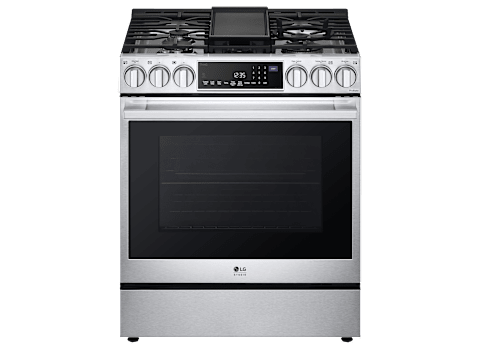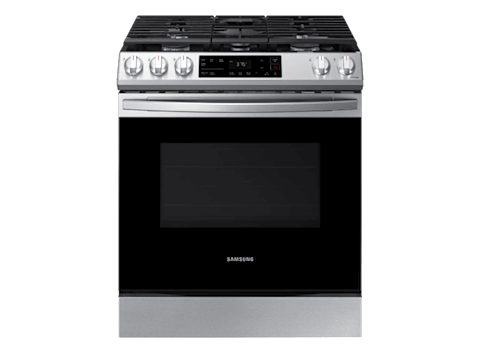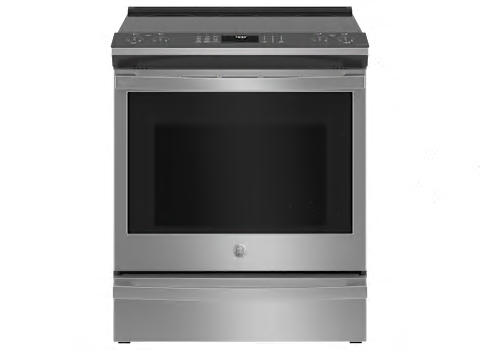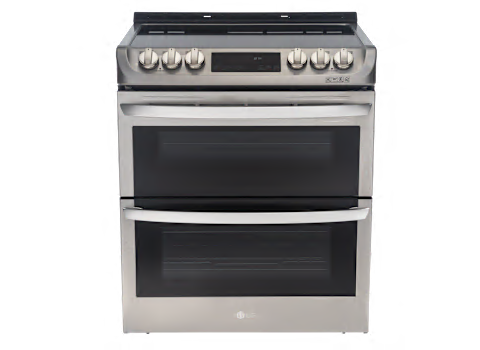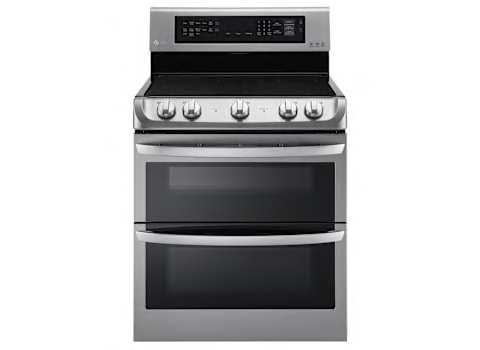Gas cooktops are often advertised on real estate listings, but they don’t necessarily offer better cooking performance than electric models.
By Paul Hope
When your stove or stove breaks down, you are usually limited to replacing it with one that runs on the same fuel source, be it electricity or gas.
Only about half of the homes in the US have gas service available as an option; the rest depends on electricity. But as much as gas ranges are touted in real estate listings and on cooking shows, they don’t necessarily offer significantly better cooking performance than electric.
And even if gas is an option for you, there are very good reasons to think twice before going with it: In addition to contributing to climate change, recent studies, including one from Stanford University, have found that methane leaks associated with gas stoves and cooktops can present health risks, particularly if adequate ventilation is not provided.
“If you could determine for yourself how well a stove could cook from its fuel source, my job would be pretty boring,” says Tara Casaregola, who oversees CR’s kitchen, wall oven and stove lab. “We see the biggest discrepancies between individual models, and you can find great options in gas or electric.”
In most cases, electric cooktops outperform gas options in CR’s lab tests. But there are exceptions to almost every rule, and that’s certainly the case here. Within our range ratings, you’ll find many models that earn top scores in every test we run, regardless of fuel source.
In CR’s range tests, the best models of any type deliver solid performance across the board. Read on for a breakdown of the two types of kitchens. And rest assured: If you live in an area without natural gas service, your culinary ambitions don’t have to be limited by the type of stove you have.
How CR compared performance
For this article, we specifically compare electric cooktops and gas cooktops because they make up the majority of what consumers see in stores. (Electric coil and induction cooktops have a much smaller slice of the market.) And we found that, in most cases, electric models have a huge performance advantage over gas cooktops.
We compared the results of the four most important tests we conducted: high heat, low heat, bake, and broil. And while performance varies from model to model, whether in the gas or electric range, our tests showed which fuel type had the advantage in each test.
high fire
Manufacturers of gas and electric cooktops have been in a competition for years to maximize output from large cooktops, which are used to, say, boil a large pot of pasta water.
Which is faster? The electric, by a fairly large margin. Of the 72 smooth-top electric ranges in our ratings, nearly half earn top marks of Excellent. Thirty-eight models earn a Very Good rating. For gas, no model earns the top rating of Excellent, though nearly 50 of the 86 in our current ratings score Very Good.
slow fire
For all the emphasis placed on boiling water quickly, a cooker’s ability to maintain a steady simmer is arguably more important. Given enough time, any kitchen will boil water. But there’s no fix for an erratic slow cooker stove, which can burn delicate sauces or melted chocolate in an instant.
What boils better? Here, electric stoves are again the winner. For electric models, just under two-thirds earn the top rating of Excellent, with more than a dozen earning a Very Good rating. Not a single model gets a Fair or Poor rating. For gas, about three-quarters of the models score Excellent or Very Good on this test, but 12 of the 86 models in our current ratings score low to Fair or Poor.
To bake
Browned cakes and cookies alike are not to be taken for granted unless you have an oven that bakes evenly.
Which bakes better? Both are very similar, with the gas ones winning by a little. In the case of gas ranges, just over 70% of all models score Excellent or Very Good, and about a quarter score Good. Only one model scores Fair and none scores Poor. For electric, about two-thirds score Excellent or Very Good, and about 30% score Good. Only two get a Fair rating, while none get a Poor rating.
Grill
Some of the biggest performance differences we see between electric and gas cooktops are in the broiler.
Which handle is better? It can be assumed that since they cook with a flame, gas grills are better. But in our tests, they routinely underperform their electric competitors.
More than half of the electric ranges in our ratings score Very Good or better for grilling, and nearly a quarter score the top rating of Excellent. Three earn a Poor grade. For gas, it’s a worse. About 15% score Very Good or Excellent, and nearly 30% of all models score Fair or Poor.
If you’re still not sure which type of cooker is right for you, our cooker buying guide delves further into the pros and cons of each. And below, we’re highlighting six of the best gas and electric ranges from our tests. For more options, check out our full range ratings.
The best gas cookers from CR’s tests
LG Studio LSGS6338F
Samsung NX60T8111SS
The best electric stoves in the CR tests
GE Profile PSS93YPFS
LG LTE4815ST
LG LDE4413ST
Consumer Reports is an independent, nonprofit organization that works side by side with consumers to create a fairer, safer, and healthier world. CR does not endorse products or services, and does not accept advertising. Copyright © 2022, Consumer Reports, Inc.
Consumer Reports has no financial relationship with the advertisers on this site. Consumer Reports is an independent, nonprofit organization that works with consumers to create a fair, safe, and healthy world. CR does not endorse products or services and does not accept advertising. Copyright © 2022, Consumer Reports, Inc.
